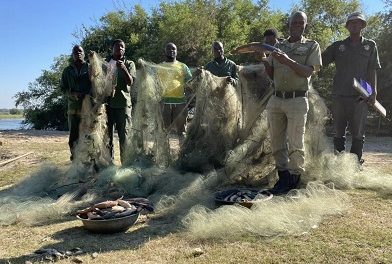
Pangolins most trafficked mammals since 2014 – Ministry concerned over pervasive poaching

The Ministry of Environment, Forestry, and Tourism in Namibia delivered a stark message on World Pangolin Day, shedding light on the alarming rise in illegal trafficking and poaching activities targeting pangolins.
Teofilus Nghitila, the Ministerial Executive Director, expressed deep concern over the ongoing illegal capture of pangolins, highlighting them as the most trafficked mammals since 2014.
“Unfortunately, this relentless exploitation has led to a steep decline in their population, pushing them perilously close to extinction,” he emphasized.
Recent seizures underscore the severity of the crisis, with confiscations in 2023 alone revealing a distressing tally of 18 pangolin skins, 12 live animals, and 146 scales. This surge in criminal activity has resulted in the arrest of 38 suspects connected to 23 registered incidents. Shockingly, these figures surpass the combined poaching cases of elephants and rhinos during the same period.
Nghitila pointed out that the majority of these cases originate from the northern regions, with Kavango West topping the list, followed by Kavango East, Ohangwena, Oshana, and Zambezi, each reporting three cases. The central regions recorded four cases collectively, while only one case was documented in the Kunene region.
“Before September, we had only recovered a total of six live animals and confiscated 19 skins from January to August 2023. In conjunction with registered crimes, the total number of pangolins poached this year – including live animals, skins, and scales – stands at 50, with an additional two fetuses miscarried by live confiscated female pangolins,” he elaborated.
World Pangolin Day serves as an international platform to raise awareness about the plight of pangolins, their ecological importance, and the imminent danger they face.
“We must unite as Namibians on this day and vehemently oppose any illicit activities related to pangolin poaching,” Nghitila urged, citing Asian medicine markets as the primary driver behind their trafficking. He also highlighted other significant threats within Namibia, including low-level electrical fencing, drought, and climate change.
Celebrated on the third Saturday of February, World Pangolin Day underscores the legal protection afforded to pangolins in Namibia, with stringent penalties awaiting traffickers and possessors of these animals. Offenders risk up to 25 years in prison and hefty fines, with recent convictions resulting in severe sentences.













































